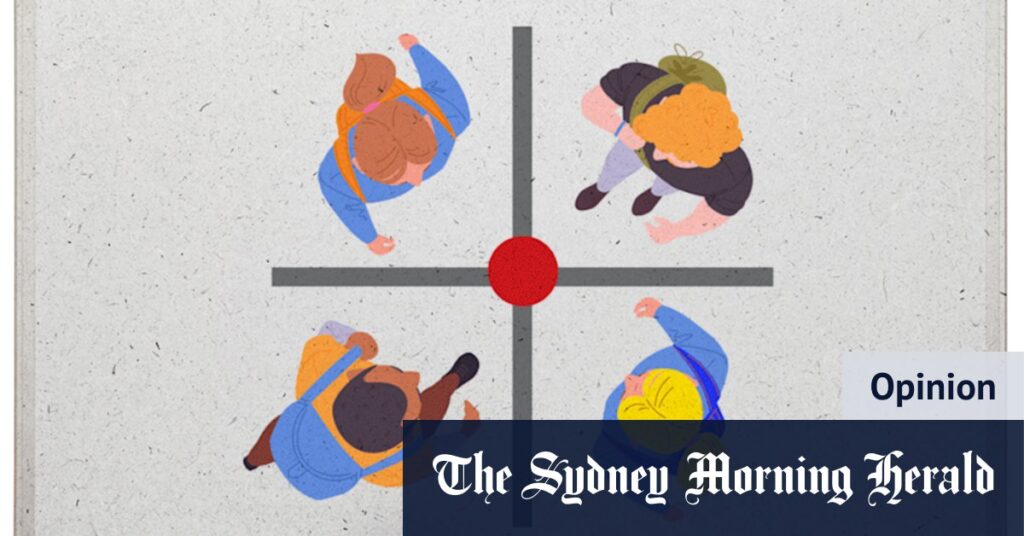
There is a nondescript door on the main road close to my house where, at peak times, the throngs of school kids going in and out resemble Central Station at rush hour. They are in different uniforms, representing a broad range of schools, but the students all have one thing in common: their parents are forking out for them to be part of a shadow education system.
The tutoring industry has emerged as the Wild West of education with little oversight or regulation. There is no data collected by federal or state education departments on how many students receive outside-of-school tutoring, why parents see the need for extra coaching, or how much they spend. All we can really rely on is the coaching colleges boasting about their results on their websites, which they do with wild abandon.
I am one of those parents who have been drawn into the world of private tutoring. My two high school-aged children are tutored in maths, but for different reasons. One is strong in the subject and is eager to stay top of the class, or as close to top as possible. The other is not a natural mathematician. Both, however, requested coaching. It was their idea, not mine, and I can only assume that’s because, in their circles, it is the norm.
The Global Tutoring Phenomenon
The first time I dropped one of them off at a local tutoring centre, I was stunned. Not by the sheer number of students coming in and out, but by the fact that I knew most of them. My kids’ friends scattered to a range of schools after Year 6, many to low-fee Catholic schools, others to expensive private schools, some to the local comprehensive. They have been reunited at a coaching college.
Tutoring has pushed its way into education systems all over the world with huge success over the past two decades. An Australian tutoring policy paper published last week says the global phenomenon of tutoring has grown to be an industry worth an eye-watering $US96.75 billion (or AU$145.5 billion). Japan and China lead the charge, but Australia does its bit to embrace coaching, with an estimated one in seven kids enrolled in school also attending extra tutoring.
Impact on Students and Schools
University of Technology Sydney social scientist Christina Ho looked at the influence of private tutoring at six public primary schools in northern and western Sydney, including three with opportunity classes (OCs), viewed by many parents as the creme de la creme of education. Ho found between 23 and 59 percent of year 5 students had extra tutoring, with the highest rates in schools with an OC. Most students were tutored for extension and test preparation, and some attended four days a week in the term before the selective test. This surely begs the question – when do these kids have time to be kids?
What is clear is that parents are willing to splash cash on tutoring. Some NSW companies charge up to $5500 a year for a single HSC tutoring course while parents can spend as much as $20,000 across multiple centres preparing for OCs and selective school tests. The companies will do everything possible to lure in families who are prepared to fuel the education arms race.
The Consequences of a Shadow Education System
And the coaching colleges expect kudos. Without revealing the school or the college, the Herald’s education editor, Lucy Carroll, told me that a large Sydney tutoring business asked us to “correct” our reporting on a student who scored an impressive 99.95 ATAR in last year’s HSC. Their gripe? We listed the school (a public comprehensive, it should be noted) rather than the tutoring company, which presumed it should take the credit for the student’s stunning results. In a billion-dollar industry, marketing is everything.
Meanwhile, education experts warn that the rise of commercial coaching centres undermines school teaching and exacerbates inequalities in the education system. As part of her research, Ho interviewed 29 teachers, with some reporting that students prioritize tutoring over their school work, which leads to boredom and switching off in class. This is not surprising. Some students are two years ahead of where they should be, thanks to tutoring.
Well-meaning parents (I accept I am one of them) are fueling a crisis in confidence in our education system. We have allowed a shadow system to explode in which there is an unspoken fear that if we do not join the masses and pay for extra schooling, our children will be left behind. At the same time, the Wild West of education is being allowed to balloon with very little oversight from governments while capitalizing on parental anxieties.
We all want the best for our kids, but by blindly following one another, we are inadvertently eroding trust in our schools and teachers to educate our children.
Alexandra Smith is NSW state political editor.
Get a weekly wrap of views that will challenge, champion, and inform your own. Sign up for our Opinion newsletter.







